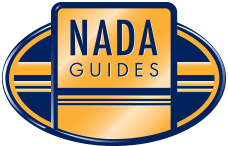Recreational Vehicle Financing Rates and News
If you have been searching for RV loan rates in 2018, you may have noticed the recent wave of RV rate increases. While the hikes of 2017 were only .25% to .37% on average, they have increased by .50%, (from their lowest point), or more so far this year. This makes it different from other upturns we have seen over the last several years, that quickly reverted back to the previous levels. This "sticky" spike leads us to conclude that rates had likely hit rock bottom in December of 2016, or very early in 2017.
All the RV news isn't that bad; after a number of years of declining RV sales, financing and other RV related services, many economic indicators have been heading in the right direction for the industry. Most of the dealers surveyed expected an increase of 12% to 17% in orders of new units from RV manufacturers; reaching for greater sales levels than the last several years of higher than anticipated totals.
In a Hurry? Try Our
Best Rate: 1-Minute Quick-Quote
Lower Interest Rates May Have Bottomed Out
Much of the new business may be coming from buyers who have been "on the fence" in deciding when to purchase. With rates currently on the rise, this trend should continue. The "Fed" will have to start raising rates sometime fairly soon, and the smoke signals we're seeing now could be read like a neon sign later in the year.
The improved economy and growing consumer confidence should continue to stimulate more sales of motorhomes and other types of recreational vehicles. RVs are even becoming "Cool" with the emerging baby boomer market.
The RV financial service providers indicated that interest rates for RV loans had hit bottom late last year, and we were in a rising interest rate economy. Our own research shows that rates had continued to hold at record low rates for most of last year, with some minor, short-lived spikes in recent months. (These increases have been confirmed as of 2017 with a quarter to half-point increases holding after the first couple months of the year.)
Complete Our On-Line Application Now!
We can also finance older used RVs and motorhomes, (from 10 - 12 years old), so you can easily find seven to ten-year-old luxury motorhomes from $60,000 to $80,000, or even less. So if you've been thinking of taking the plunge, come on in - the water (and rates) may be rising soon.
The banks, as well as online RV loan brokers, felt the trend could very easily reverse course if the economy began to sputter - or even if things began to heat up and jump-start a new ripple of competition between RV lenders. (That seems less of a chance now, as there are so few national RV lenders even in the market.)
The head of RVIA, the Recreational Vehicle Industry Association said that he expects shipments of new RVs to continue to increase this year. We agree that this will be another year with increases of 5% to 6% higher than last year. RV manufacturing, much of which is located in Indiana, is an $11 billion dollar industry, now employs close to 300,000 people, with mergers of existing manufacturers and new brands emerging at an increasing rate.
And Now, a Word from the Government
Although current economic conditions have improved, uncertainty in government policies may still dampen spirits if political leaders continue to keep their focus on their own interests above those of the American people. (Or vise versa, depending on your own opinion and current developments. This seems to be a common topic in recent events; and in the opinion of many people surveyed at recent shows, the industry news and media, and RV events across the country.)
At some point the Fed will have to begin to increase interest rates - however, with inflation remaining stable, that may not be enough to derail the recreational industry's current "freight train" momentum. The recent election instability has begun to confirm our theories that we are beginning to enter a rising rate environment.
But Wait - There's Still More
All government and political issues aside, the RV market is being "buoyed" by the ever-increasing demands of retiring, or "soon to retire" baby boomers. The Gen X'ers and Millennials are falling in line right behind them.
With these higher numbers of potential RV buyers entering the market, forward-thinking RV manufacturers are continuing to engineer and produce lighter and more efficient units at virtually all price levels. This is helping keep the younger, entry-level buyers engaged with more economical and easier to purchase RVs at most all levels.
These gains in innovation are also keeping older, or should I say "Seasoned" RV'ers in the game by helping reduce operating costs, making more maneuverable units - and even lightening up the Big Boys. What are ya gonna do, but keep on rolling!
Continued gains in the job market, and higher household incomes and the current record-low interest rates, would seemingly project an extremely favorable outlook for the recreational industry in the foreseeable future.
Regardless of the outcome, the near-term months and approaching years are widely projected to be the best time to purchase and/or finance an RV. If you are in the market but may have been waiting for the rock bottom. That time could very well be now. Stay tuned for updates, or just get it out of the way while the getting is good.













